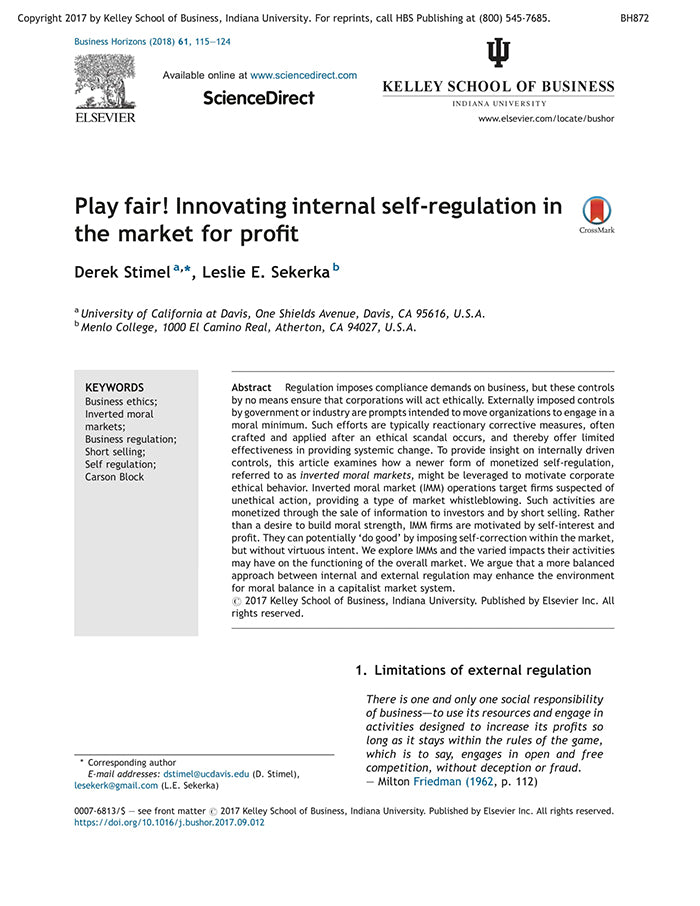Play Fair! Innovating Internal Self-Regulation in the Market for Profit
受取状況を読み込めませんでした
Regulation imposes compliance demands on business, but these controls by no means ensure that corporations will act ethically. Externally imposed controls by government or industry are prompts intended to move organizations to engage in a moral minimum. Such efforts are typically reactionary corrective measures, often crafted and applied after an ethical scandal occurs, and thereby offer limited effectiveness in providing systemic change. To provide insight on internally driven controls, this article examines how a newer form of monetized self-regulation, referred to as inverted moral markets, might be leveraged to motivate corporate ethical behavior. Inverted moral market (IMM) operations target firms suspected of unethical action, providing a type of market whistleblowing. Such activities are monetized through the sale of information to investors and by short selling. Rather than a desire to build moral strength, IMM firms are motivated by self-interest and profit. They can potentially 'do good' by imposing self-correction within the market, but without virtuous intent. We explore IMMs and the varied impacts their activities may have on the functioning of the overall market. We argue that a more balanced approach between internal and external regulation may enhance the environment for moral balance in a capitalist market system.
【書誌情報】
ページ数:10ページ
サイズ:A4
商品番号:HBSP-BH872
発行日:2018/1/15
登録日:2018/2/26


